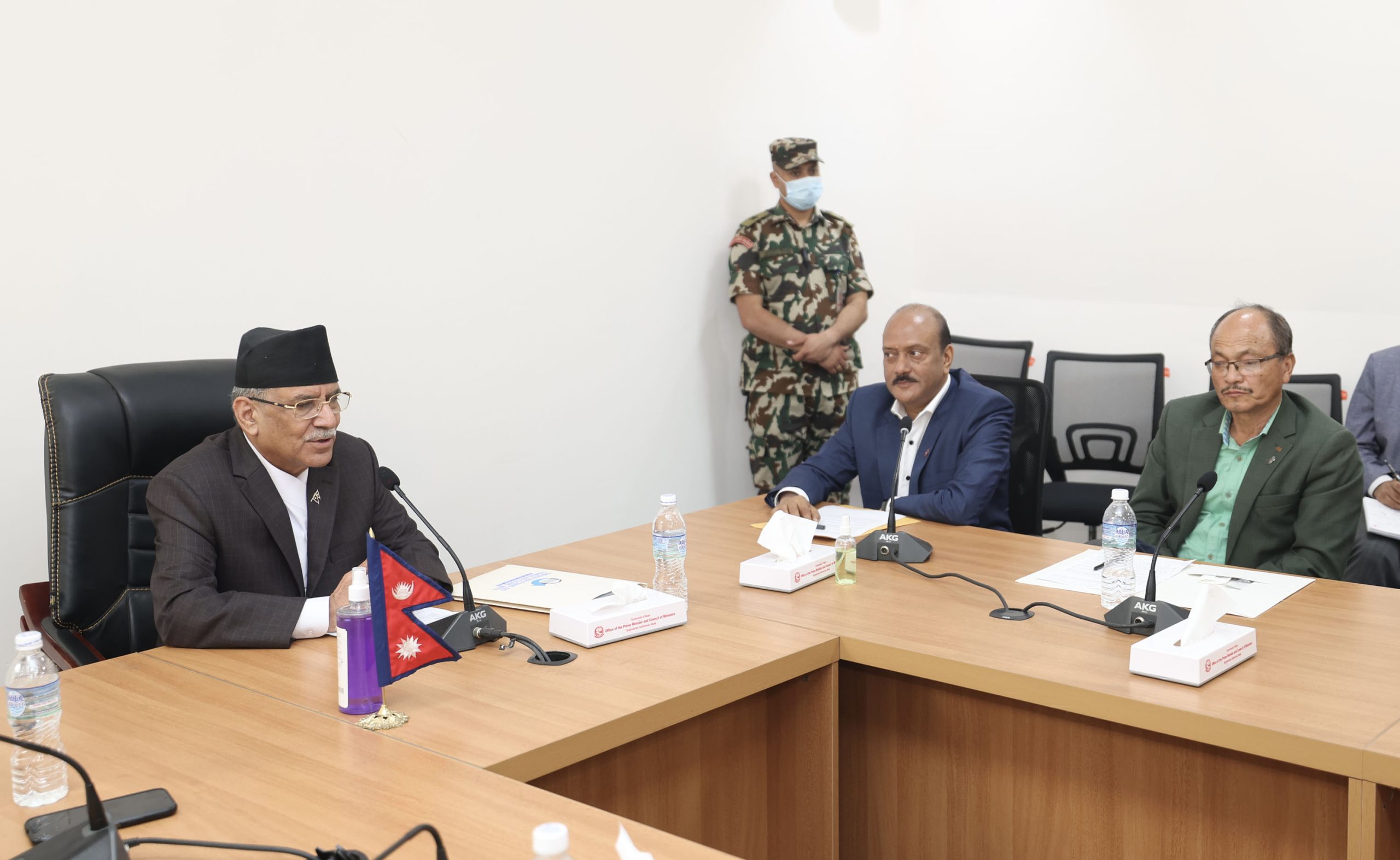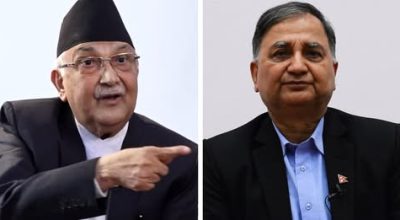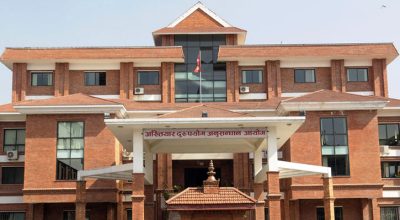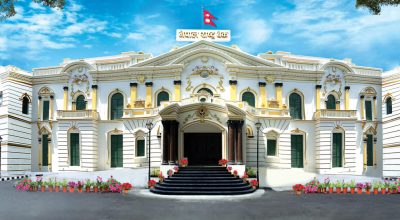
Kathmandu, April 10: Prime Minister Pushpa Kamal Dahal ‘Prachanda’ has said the government is committed to resolving present problems seen in the country’s economy and vigorously working to resolving them.
Addressing the 72nd Annual General Meeting of Nepal Chamber of Commerce here today, he asserted that the government wanted the same level of support from the private sector for economic reforms.
“The contribution of the private sector is important in running the nation’s economy. Two-thirds of the total investment is from the private sector. The private sector has been playing a progressive role in the supply of essential goods and services as well as in increasing productivity and employment,” the Prime Minister said, highlighting the contribution of the private sector.
He stated that the three tiers of the government too have been forging coordination with the private sector while formulating their plans and policies. The private sector has a significant role in achieving Nepal’s goal of graduating from a least developed country by 2026 and the sustainable development goals (SDGs) by 2030, e added.
PM Dahal stressed on prioritization of the areas of investment now as significant progress is seen in various sectors related to the economy in recent years. “The multi-dimensional poverty is decreasing. A significant progress has been made in the education sector, gender empowerment, drinking water facilities and access to power, among other sectors. Now is the time to ramp up and prioritize the sector-wise investment,” he said.
According to the PM, failure to increase domestic production and employment will hamper the sustainable development of the economy. He also claimed that the basic economic indicators were on positive trajectory in the recent days.
“We have been importing a large quantity of goods which could be otherwise produced within the country itself and more than 2,000 youths are going abroad for employment on a daily basis, but the country’s economic outlook is not that gloomy. Although the foreign currency reserve and revenue collection are low, these issues have also been gradually resolved,” the PM viewed.
Finance Minister Dr Prakash Sharan Mahat also asserted that the economy was not much in bad shape. “We all know that our economy lacks optimism, but the kind of narrative about the pessimistic outlook that is being created, it is not like that. Only a negative picture of the economy is being painted. We should move ahead with the confidence that the country’s economy will now improve and make progress,” he said.
He opined that this negative thinking seen in the market is a matter of worry. As the Finance Minister said, the external sector is on the path of improving and the inflation is also under control, but a big impact has been seen in some other sectors.
“Return on investments has been low due to many factors like a liquidity crisis, exorbitant interest rate and an increment in production costs. As a result of these factors, small and big investors are finding it difficult to invest. The situation of the collection of government revenues has reached the situation of worry,” he said.
This year, the overall government revenue collection has drastically decreased beyond the target with customs revenue collection along dropping 28 percent, he said. Reducing public expenditures and increasing capital expenditures has remained challenging, he viewed. Although the government has prioritised the increment of capital expenditures, results have not been effective, according to him.
“Development projects have faced problems relating to forests, land acquisition, distribution of compensation for acquiring lands and contractors. But, the government is serious about taking optimal measures to increase capital expenditures,” he said.
Similarly, Minister for Industry, Commerce and Supplies, Ramesh Rijal pointed out the ‘equal’ role of the private sector to improve the country’s economy. “The country’s economy activities are not that good. The private sector has an important role in making them good. For this, the government will facilitate in formulating policies and rules,” he said. He also pledged to do his best to feel the problems facing the private sector and resolve them.
A disturbance in the fiscal and monetary policy is blamed for the country’s weakening economy, said Chairperson of the Nepal Chamber of Commerce, Rajendra Malla.
“The economy has not taken expected pace due to a lack of coordination in the monetary and fiscal sector. The situation wherein the revenues cannot deal with current expenditures is not a good signal. There is the need of the hour meet the target for revenue collection by expanding economic activities. The scope of taxes should be increased by curbing illegal trade along the Nepal-India border,” he was of the view.
The situation of capital expenditures has been disappointing, he said. “There is a problem in liquidity due to failure to spend capital. Excessive trade deficit is also today’s problem. To reduce trade deficit, measures like an increment in domestic production, and the expansion of information and communications sector should be adopted,” he said.











